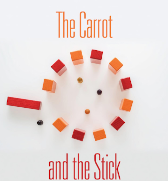
Dr. William ("Bill") Putsis
Dr. Putsis is Professor of Marketing, Economics and Business Strategy at the Kenan‐Flagler Business School at the University of North Carolina at Chapel Hill and also teaches on Executive Programs at the Yale School of Management at at Duke CE. Prior to his current position, he was Professor and Department Area Chair at the London Business School (1997‐2003), Associate Professor at the Yale School of Management, Yale University (1990‐1997) and Assistant Professor, Cornell University (1988‐1990). He has his MS and PhD in Economics from Cornell University. He is also President and CEO of Chestnut Hill Associates, a strategic consulting firm that he founded in 1995 and partner in CADEO Economics, a management consulting firm specializing in using applied game theory to manage and preempt competition. He is also a partner in a number of startups, learn more at: https://www.chestnuthillassociates.com or http://www.putsis.com.
He has published two books. The first, Compete Smarter, Not Harder: A Process for Developing the Right Priorities Through Strategic Thinking (Wiley, 2014), presents a detailed process, well tested in industry for over 25 years, that focuses on growth through prioritization. Companies using this process successfully in practice are as diverse and varied as The Boeing Company, Owens Corning and Underwriter’s Laboratory. Editors at Amazon named it as a best book in business and leadership. His most recent book, The Carrot and the Stick: Leveraging Strategic Control for Growth (University of Toronto Press, 2020), focuses on the two keys to strategy in today’s business interconnected ecosystems: “Strategic Control” and “Vertical Incentive Alignment.”
He has worked with companies throughout the world, including China, India and Europe as well as the United States. His recent consulting client list includes Underwriter’s Laboratory, the Boeing Company, BASF, SAS, Heinz, John Deere, Baker Hughes International, Owens Corning, Eastman Chemical, Globe Union, AgReliant Genetics, Atkore International, World Kitchen International, Ingersoll Rand, DHL Worldwide, Morgan Stanley, Amcor, BBC World Service, Barclays Bank, CITIC Bank, and Founder Group (方正集团).
He has also taught successful Executive and Full‐Time MBA courses at top-‐ranked universities in the United States, Europe and China (Yale, Cornell, Columbia, London Business School, University of North Carolina at Chapel Hill and Tsinghua University), winning awards for his executive teaching numerous times. His list of clients for executive non‐degree programs include Owens Corning, the Boeing Company, Barclays Bank, Verizon, Royal Bank of Scotland, SAS, ABN AMRO, BASF, Amcor, John Deere, British Airways and Baker Hughes International.
His research and academic pursuits focus on the empirical application of game theoretic models of competition, competitive strategy, the marketing of private label products, new product diffusion and product line strategy. He has over 30 scholarly articles published in journals such as the Journal of Marketing Research, Marketing Science, Journal of Business, Journal of Business Research, Managerial and Decision Economics, Marketing Letters, Applied Economics, Journal of Forecasting and the Review of Industrial Organization.

